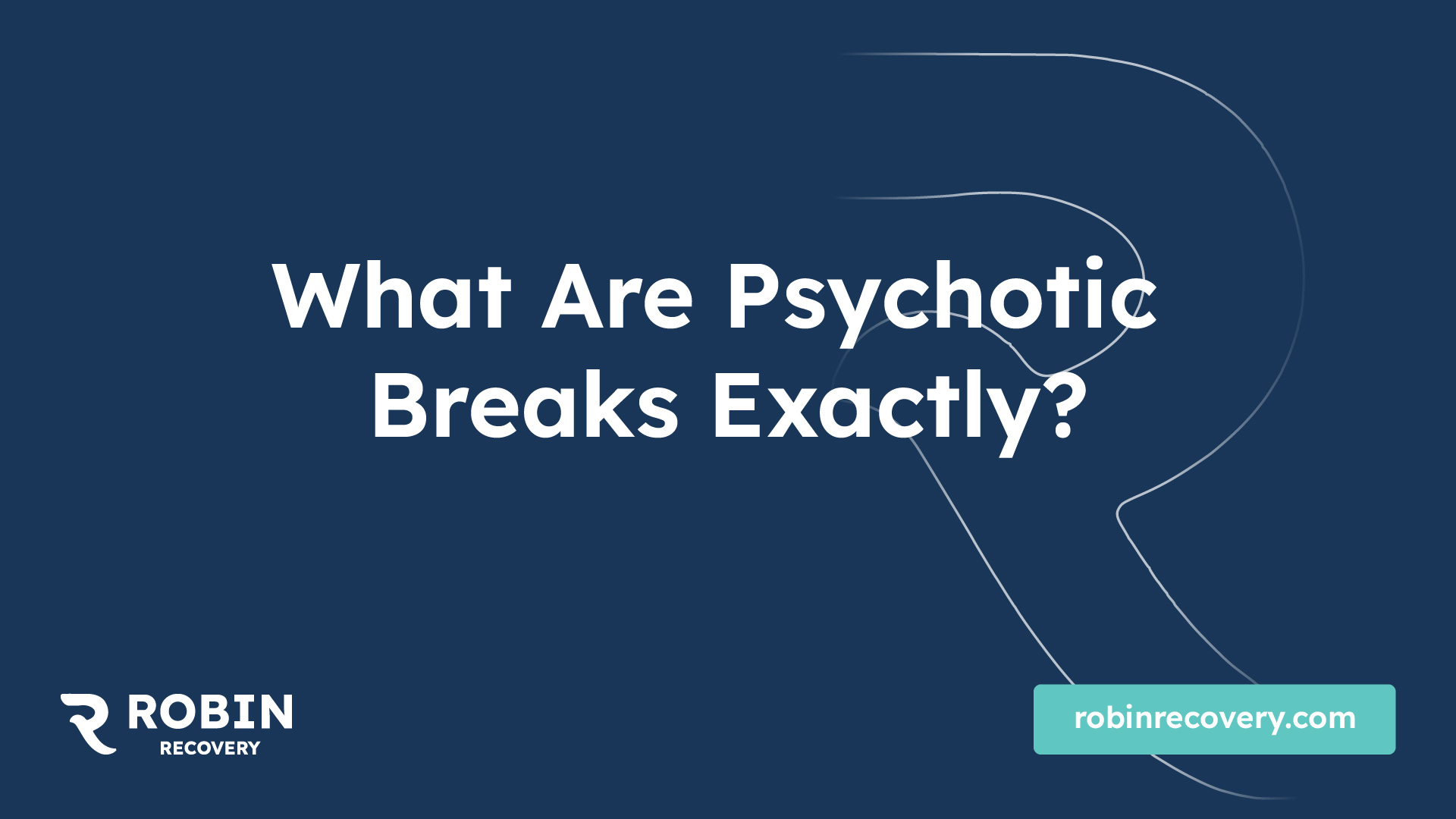Understanding Psychosis
Psychosis is a complex mental health condition that affects a person's thoughts and perceptions. It can manifest in various ways, leading to significant challenges in daily functioning.

Defining Psychosis
Psychosis refers to a collection of symptoms that affect the mind, leading to a loss of contact with reality. During an episode of psychosis, a person’s thoughts and perceptions are disrupted, making it difficult to distinguish between what is real and what is not [1]. According to the National Institute of Mental Health, psychosis is not a diagnosis, but rather a symptom that can be associated with numerous mental and physical conditions [2].
Many young individuals experience psychosis, with approximately 100,000 reported cases each year [3]. This condition can emerge from various factors, including stress, trauma, drug use, and underlying mental health disorders.
Types of Psychosis
Psychosis can be classified into several types, each with its own causes and characteristics. These include:
Type of PsychosisDescriptionPrimary PsychosisThis includes conditions like schizophrenia, where psychosis is the primary symptom.Secondary PsychosisOccurs due to an underlying medical condition or substance abuse.Substance-Induced PsychosisTriggered by the use of drugs, including prescription medications, alcohol, and illicit substances.Brief Psychotic DisorderCharacterized by sudden and temporary episodes of psychosis, usually following a stressful or traumatic event.Delusional DisorderInvolves strong beliefs in false ideas that persist despite evidence to the contrary.
Understanding these distinctions is crucial for proper diagnosis and treatment. Each type requires different approaches to management and intervention. Awareness of the symptoms and potential triggers can help individuals seek timely support when experiencing signs of psychosis. For more information on related topics, consider exploring articles on common causes of over the counter drug abuse or what is disordered eating?.
Symptoms and Early Signs
Recognizing the symptoms of psychosis can be crucial for early intervention. There are specific early warning signs and hallmark symptoms that indicate an individual may be experiencing a psychotic break.
Early Warning Signs
The early warning signs of psychosis often go unnoticed and may present themselves several days or even weeks before more severe symptoms manifest. Common early indicators include:
Another important behavioral warning sign is a drop in performance at school or work. Individuals may struggle to think logically or express strange ideas or statements [2]. In the U.S., approximately 100,000 young people experience psychosis each year.
Early Warning SignsDescriptionPersonality ChangesNoticeable shifts in how the person interacts with others or expresses themselves.Sleep ChangesEither excessive sleeping or insomnia can indicate underlying issues.Social WithdrawalPulling away from friends and family can be a significant warning sign.Lack of Self-CareNeglecting personal hygiene or grooming habits.Confusing BehaviorsAppearing disorganized in thoughts and actions or expressing peculiar ideas.
Confused Thinking and Delusions
As psychosis progresses, an individual may experience more pronounced symptoms such as confused thinking and delusions. Confused thinking can manifest as:
Delusions, which are false beliefs that are firmly held despite contradicting evidence, are also common during psychotic episodes. These may include paranoid delusions—where an individual believes others are plotting against them—or grandiose delusions—where one may believe they have extraordinary powers or abilities.
Stress can significantly contribute to the development of these symptoms. High levels of stress can impair the brain's ability to process information and emotions effectively, further affecting an individual's perception of reality [3].
Symptom TypeCharacteristicsConfused ThinkingDifficulty concentrating and organizing thoughts.DelusionsFixed false beliefs, often paranoid or grandiose in nature.High StressIncreased stress levels can exacerbate symptoms and lead to a breakdown in perception of reality.
Understanding these symptoms and early signs is a pivotal step in addressing what are psychotic breaks and facilitating timely help for those in need. For more information on recovery and treatment, visit our section on episodes of psychosis.
Causes of Psychosis
Understanding the causes of psychosis is crucial for identifying and treating this mental health condition. Several factors can contribute to the onset of psychosis, including various psychological and biological elements.
Factors Contributing to Psychosis
Multiple factors can influence the development of psychotic disorders. These include:
Contributing FactorDescriptionGeneticsFamily history increases likelihood.Substance UseDrug and alcohol abuse can trigger symptoms.TraumaSignificant traumatic events raise vulnerability.Mental Health DisordersExisting issues can elevate risk.
Neurobiological Factors
Neurobiological factors are also integral to understanding what causes psychotic breaks. Research indicates that brain abnormalities, particularly in specific regions, have been linked to psychotic disorders. The following highlights key neurobiological aspects:
Neurobiological FactorEffect on PsychosisBrain AbnormalitiesLinked to reduced grey matter.Dopamine LevelsExcess contributes to positive symptoms.
Understanding these contributing and neurobiological factors can help in identifying the signs of psychosis and inform effective treatment strategies. For more information on the symptoms and early signs of psychosis, refer to the section on symptoms and early signs.
Episodes of Psychosis
Psychotic Breaks
A psychotic break is a significant episode in which an individual loses touch with reality. This experience can manifest through hallucinations, delusions, disorganized thoughts, and emotional disturbances. Understanding what psychotic breaks are is essential for recognizing their impact on both the individual and their surrounding community.
Studies estimate that between 15 and 100 individuals out of 100,000 develop psychosis each year. The onset often occurs in young adulthood but can arise at various ages and in association with different disorders or illnesses. Notably, older adults with neurological disorders may be at a higher risk for psychosis [2].
DemographicEstimated Incidence Rate (per 100,000)Total Population15 - 100Young AdultsHigher occurrence during young adulthoodOlder Adults (with neurological disorders)Increased risk
Recovery and Treatment
Recovery from a psychotic break can be a complex process that requires comprehensive support and treatment. Early intervention is crucial in managing psychosis effectively. Delays in treatment are associated with poorer outcomes.
Research indicates that the longer psychosis remains untreated, the more challenging it becomes to manage. Those experiencing psychotic symptoms may wait over a year before receiving appropriate treatment. Coordinated specialty care, which emphasizes easy access to treatment and shared decision-making among specialists, patients, and family, has emerged as an effective approach for early psychosis care.
Providing persistent support from family and friends can significantly impact an individual's recovery journey. Engaging loved ones in the treatment process can foster a supportive environment conducive to healing [3]. By prioritizing treatment and support, individuals experiencing psychosis can work towards a more stable and healthy future.
Psychosis Statistics
Understanding the statistics surrounding psychosis is crucial in grasping the prevalence and demographics of this mental health condition.
Incidence Rates
Research indicates that approximately 15 to 100 individuals out of 100,000 develop psychosis each year. In a given year, nearly one in every 200 adults in Australia may experience a psychotic illness. The incidence for a first-time episode of psychosis is about 50 in 100,000 people, while schizophrenia has an incidence of around 15 in 100,000 people [6].
ConditionIncidence (per 100,000 people)First Episode of Psychosis50Schizophrenia15General Psychosis15 - 100
Gender and Age Trends
The onset of psychosis typically occurs during young adulthood, primarily in the late teens to mid-20s. The peak age for males is during their teens to mid-20s, while females tend to experience onset in their late teens to late 20s.
About three percent of the population will experience a psychotic episode at some point in their lifetime. It is essential to note that older adults with neurological disorders may also face an increased risk of developing psychosis [2].
Age GroupPeak Onset for MalesPeak Onset for FemalesTeensYesYes20sYesLate 20sOlder AdultsPossiblePossible
These statistics illustrate the critical nature of understanding the dynamics of psychosis and emphasize the importance of seeking help early for those who experience early warning signs. For further information about the signs and symptoms, visit what are psychotic breaks?.
References
[2]:
[3]:
[4]:
[5]:
[6]:

.svg)

.svg)

.svg)
.svg)






































































































